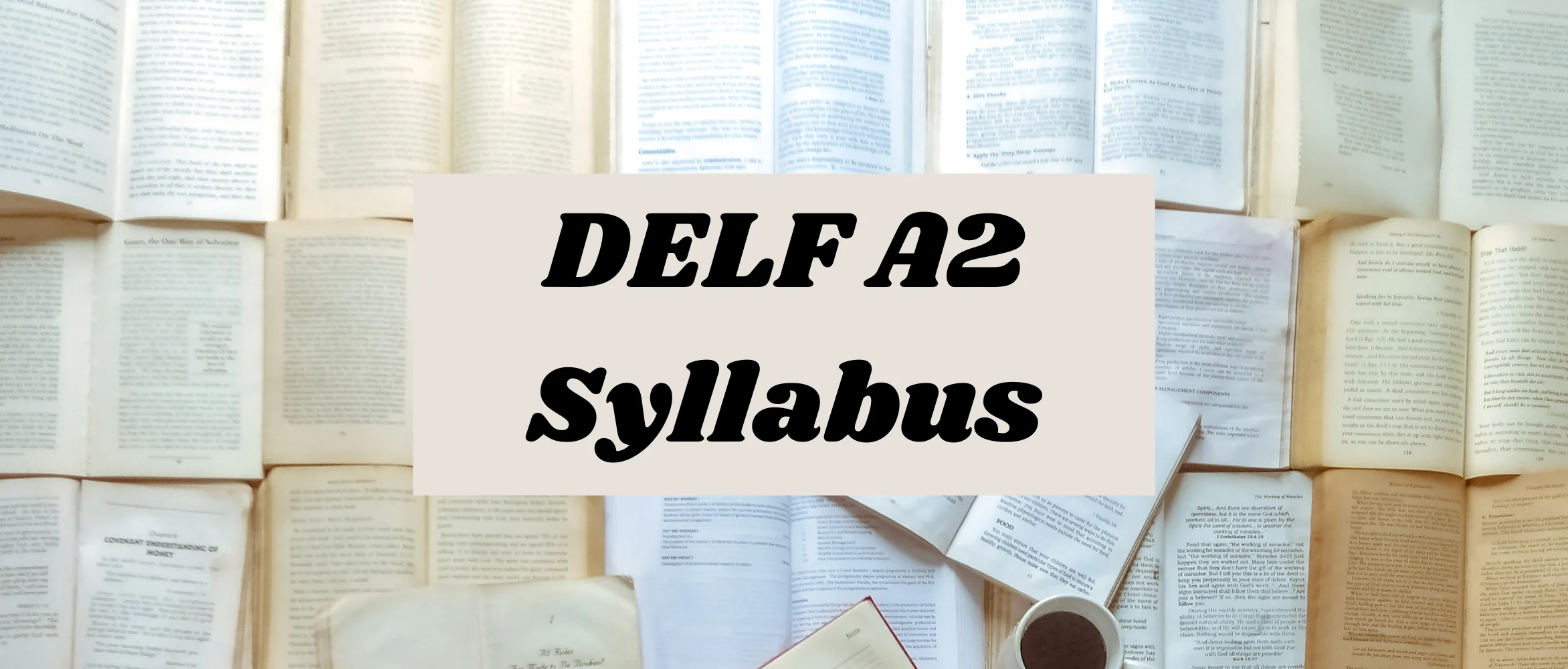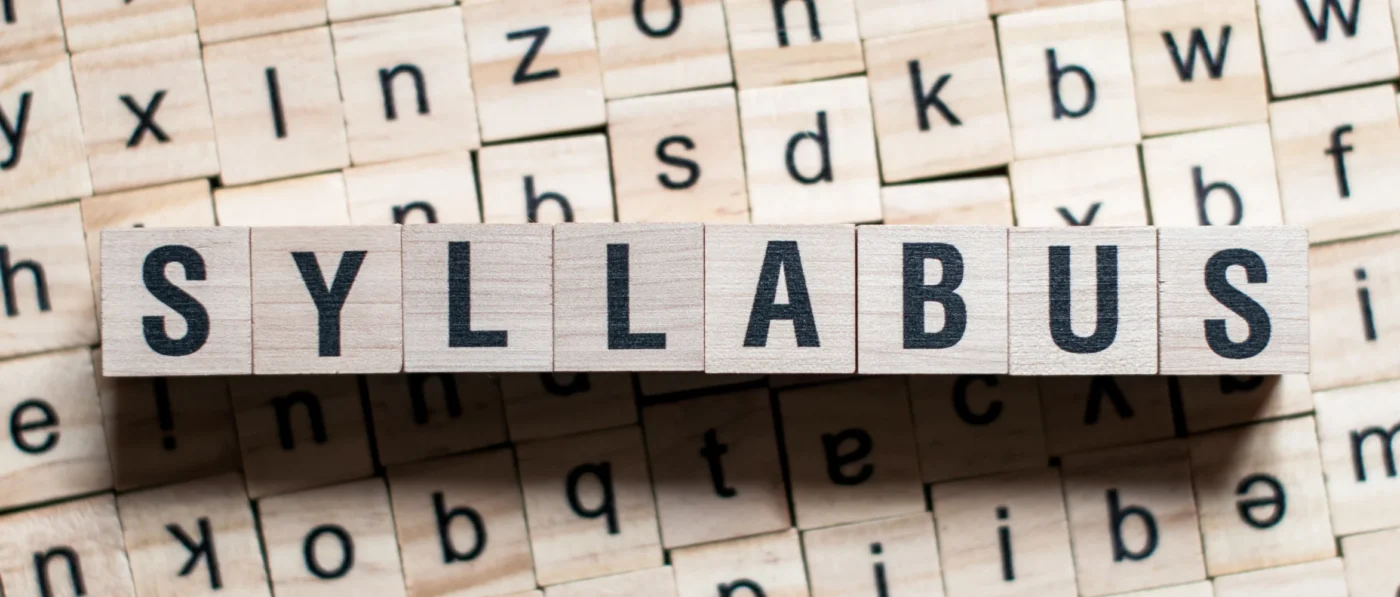The Diplôme d’Études en Langue Française (DELF) is an official certification of French language proficiency for non-native speakers. Recognized globally, it assesses four language skills: listening, speaking, reading, and writing. Administered by the French Ministry of Education, DELF offers various levels from A1 to B2, catering to learners at different stages of proficiency. Achieving DELF certification validates one’s French language abilities and opens doors to academic, professional, and personal opportunities.
DELF A2
DELF A2 assesses basic French language skills. At this level, individuals can understand frequently used expressions and simple sentences related to daily routines, family, and immediate environment. They can also communicate through simple routine tasks in day-to-day life.
DELF A2 Exam Structure
| Type of tests: DELF A2 | Duration | Mark out of |
|---|---|---|
| Listening Comprehension questionnaires deal with several short recordings about everyday life (played twice). Maximum duration of recordings: 5 mins | Approximately 25 minutes | 25 |
| Reading Comprehension questionnaires deal with several written documents about everyday life. | 30 minutes | 25 |
| Writing Two short pieces of writing (a letter to a friend or message). Describe an event or personal experience Invite, thank, say, sorry, ask for something, give information, congratulate in writing…. | 45 minutes | 25 |
| Speaking Three parts test: Guided conversation (Approximately 1 minute) Followed monologue (Approximately 2 minutes) Interactive exercise (Approximately 3 to 4 minutes) | 6 to 8 minutes Preparation: 10 minutes | 25 |
| Total length of group tests: 1 hour 40 minutes Total marks out of 100 Overall pass mark of the DELF A2: 50/100 Minimum mark required per test: 5/25 | ||
DELF A2 Syllabus
1. Communication Skills – DELF A2
a. Social Interaction
- Approaching Someone and Asking for Something
- Getting Acquainted with Someone
- Introducing Oneself and Others
- Asking for Clarification and Giving Personal Information
- Making and Managing Appointments
- Congratulating, Wishing, and Giving Compliments
- Inviting, Offering, Accepting, and Declining
- Discussing Daily Habits and Plans
- Asking and Giving News About Someone
- Expressing Likes, Dislikes, and Plans
- Offering and Asking for Help
- Interacting on the Phone
- Sharing Ideas for Outings
- Making Suggestions and Responding to Suggestions
- Stating Reasons and Explaining Choices
- Expressing Reservations and Opposing Views
- Talking About Pleasure and Displeasure of Past Events
- Expressing Interest or Indifference
- Organizing an Outing and Discussing Plans
- Asking for and Seeking Advice
- Expressing Intentions and Offering Help
- Giving Caution and Warnings
- Talking About Professional Experience and Feelings
- Communicating Hopes and Wishes
- Talking About Intentions
b. Description and Stories
- Speaking About Past Events
- Sharing Memories, Anecdotes, and Stories
- Reporting Factual Stories
- Narrating Past Experiences
- Learning About Places and Describing Them
- Introducing Countries, Cities, and Residents
- Describing Physical Conditions
- Describing People and Relationships
- Introducing People with Short Biographies
- Learning About Objects and Describing Them
- Comparing Objects, People, and Platforms
- Presenting Topics or Projects
c. Share Information
- Seeking and Providing Instructions
- Asking for and Providing Information
- Explaining How to Use Devices
- Asking and Giving Explanations and Details
d. Opinions and Arguments
- Expressing Agreement or Disagreement
- Communicating Opinions
- Judging and Appreciating
- Explaining Cause and Consequence
e. Goods and Services
- Explaining Quantities and Measurements
- Making Purchases and Transactions
- Talking About Modes of Transportation
- Making Reservations and Orders
- Verifying Information About Time
- Expressing Satisfaction, Dissatisfaction, and Complaints
2. Discursive Skills – DELF A2
a. Various Kinds of Interactions
Informal Conversation:
“Hi, how are you?”
“Yes, and you?”
Formal Conversation:
“Hello, how may I assist you?”
b. Exclaiming
“What a surprise!”
“Incredible!”
c. Politely Interrupting to Ask for Repetition
“Sorry, I didn’t understand. Could you repeat slowly?”
d. Engaging in or Ending Conversations
“Excuse me, may I ask you a question?”
“I’m sorry, but I have to go now.”
e. Expressing the Desire to Share Views
“I would like to share my opinion on this subject.”
f. Ensuring Listener’s Understanding
“Did you understand?”
“Is everything clear so far?”
3. Sociocultural Knowledge
a. Politeness in Social Settings
“Excuse me, could you pass me the salt, please?”
b. Formats for Invitations, Thanks, and Apologies
“Hello [Name], I invite you to [event] which will take place on [date] at [time] at [location]. I hope to see you there!”
c. Basics of Friendly Letter/Email Writing
d. Basics of Phone Conversation Formalities
“Allô ?” is the most common phone answer, similar to “Hello?” in English.
e. Formalities in Paying Bills
“Here is your bill for [service].”
f. Basics of Formal/Business Letter Writing
4. Grammar at the DELF A2 Level
- Tenses
- Questions
- Exclamations
- Negation
- Infinitive and Imperative
- Conditionals
- Subjunctive
- Participles
- Other Verb Groups
- Hypotheses/Assumptions
- Nomination
- Gender and Number
- Items
- Adjectives
- Adverbs
- Space and Time
- Pronouns
- Logical Relationships
- Connectors
5. Vocabulary Themes at the DELF A2 Level
- Personal/Everyday Objects
- Customs, Traditions, and Cultures
- Professional Sphere
- Family and Social Life
- People: Physical Characteristics and Personality
- Feelings and Emotions
- Health
- Daily Activities
- Leisure and Sports
- Modes of Transport
- Vacation and Travel
- Housing: Furniture and Facilities
- Cuisines and Various Foods
- Clothes and Accessories
- Media and News
- The Weather
- Environment, Climate & Ecology
- Education Systems and Training
DELF Worries? Say Adieu!
La Forêt’s expert DELF prep makes studying simple and stress-free.
Conclusion
Mastering the DELF A2 level is not just about achieving a certification; it opens doors to countless opportunities for personal and professional growth. In our French Class, we understand the significance of guided learning under a qualified instructor in achieving this milestone.
Our experienced instructors provide comprehensive guidance tailored to each student’s needs, ensuring they develop the language skills necessary to excel in the DELF A2 exam and beyond. With structured lessons, interactive activities, and personalized feedback, our students embark on a journey of language acquisition that is both effective and enjoyable.
Frequently Asked Questions
Q: Can I write DELF A2 without A1?
Ans: Yes, you can write the DELF A2 exam without completing A1. However, basic French knowledge is recommended to navigate the A2 level content effectively. It is essential to assess your language skills and readiness before attempting the exam to ensure success.
Q: What DELF level is fluent?
Ans: DELF levels do not directly correlate with fluency. DELF assesses proficiency in French across different levels: A1, A2, B1, B2, C1, and C2. Fluency is typically associated with higher levels, such as B2 (independent user) and above, where individuals can easily communicate effectively and understand complex topics.
Q: How to study for DELF A2?
Ans: To study for DELF A2, focus on listening, speaking, reading, and writing skills. Use study materials like textbooks, practice exams, and online resources. Practice with a tutor or language partner, listen to French audio, read simple texts, and write regularly. Familiarize yourself with the exam format and timing to build confidence. You can join La Foret French Class, a French language teaching institution in India, and can increase your chances of clearing the DELF A2 exam.
Q: Is DELF accepted in Canada?
Ans: Yes, DELF is widely accepted in Canada as proof of French proficiency, particularly in educational institutions, immigration processes, and employment sectors requiring French language skills. It is a recognized certification of language ability and is often preferred or required for French-language programs and job opportunities.





